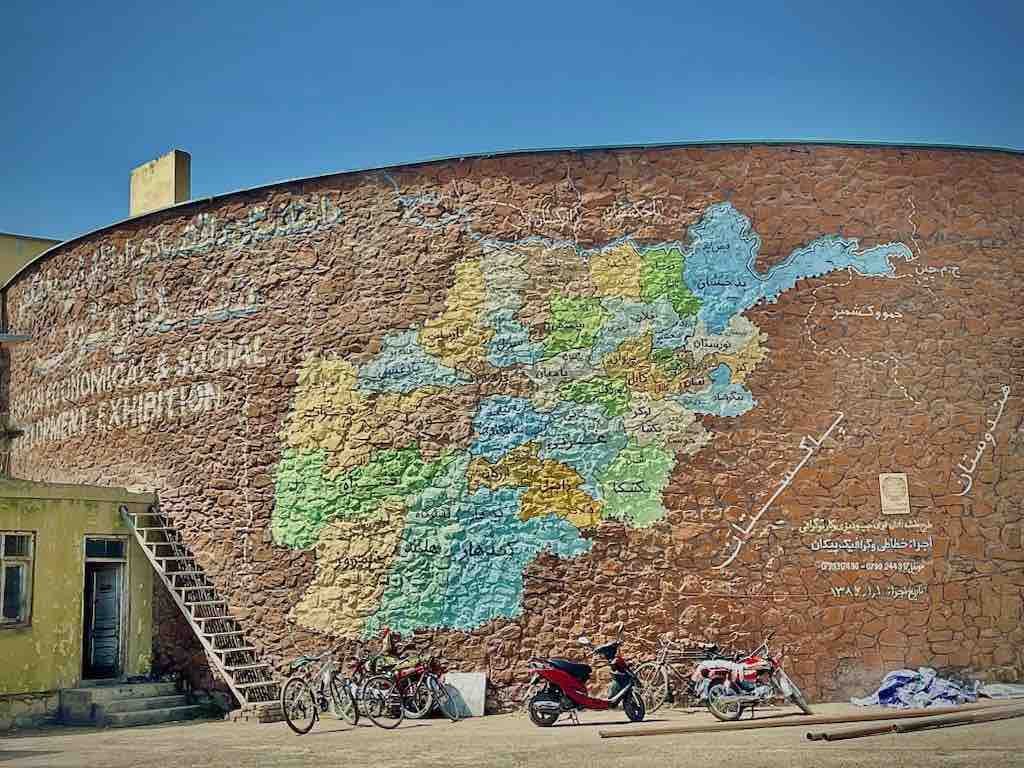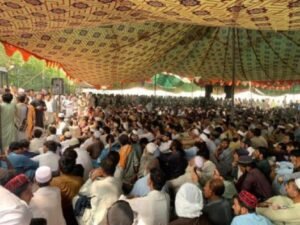Afghanistan-Pakistan border areas continue to face brutality of Pakistani Forces

Photo: @AADIL
By Shinwari
Pakistan’s global posturing as working for peace withstanding, the border areas with Afghanistan continue to be in a state of turmoil. Decades of Pakistani hostility towards Afghanistan has evolved to take the form of various mechanisations including cross-border firing, erection of illegal structures, fencing, and violation of Afghan airspace. The common pretext used by Islamabad to justify these actions is for countering terrorism in the border areas spread over the tribal districts of Khyber Pakhtunkhwa (KP) and Balochistan.
However, the real motive behind the so-called operations is imposing Pakistani view on the issue of disputed border demarcation known as the Durand Line. Disregarding the conditions prevailing at the time of drawing this line by the British regime, Pakistan is always seen exploiting the legacy problem. In this pursuit, Islamabad has ignored the concerns of Kabul that never accepted the Durand Line as the international border.
The tribals, especially Pashtuns living in hilly areas on both sides face the constant ire of the Pakistani army which claims to be countering terrorism on international border. There have been many instances of unprovoked firing by Pakistani forces on civilians crossing ‘border’ despite reminders from the Afghan side that such movements are within the framework of a bilateral agreement.
For more than a year now, Afghanistan has been lodging official protests with Pakistan over firing and other hostile activities of Pakistani forces in Paktika, Paktia and Nangarhar provinces of Afghanistan. In 2023 alone, more than 150 incidents of airspace violation, firing and unilateral construction of military facilities by Pakistani forces have been recorded. In August 2023, Kabul lodged a strong protest over repeated violations of its airspace by Pakistani aircrafts/unmanned serial vehicles (UAVs) and incessant firing along the Durand Line. Recently, there has been a spurt in violations involving the use of UAVs by Pakistani forces in Khost. At the same time, various locations in Kunar and Khost provinces have witnessed an increase in cross-border firing. Earlier, in June 2023, the Afghan Ministry of Foreign Affairs (MoFA) had protested Pakistani firing on Afghan workers engaged in road construction in Gurbaz district of Khost province.
Brutal actions of Pakistani forces have also seen resistance from the Taliban which has overtime taken the form of retaliation, wide in scale and reach. In June, the Afghan Defence Minister reiterated his country’s long-held position on the Durand Line by calling it a ‘fake line’. The attacks inside Pakistan by Tehrik-e-Taliban Pakistan (TTP) are also considered to be a manifestation of Pakistan’s failed policy for tribal areas. Recently, there have also been pointers towards some tacit understanding between the TTP, Baloch insurgents, and the religious militant groups in the former tribal regions. As a result, crushing the activities of TTP has emerged as the prime aim of Pakistani security forces. Working on that front, it has tightened controls at the border crossings, especially since the TTP ended a cease-fire with the government in November 2022. However, continued attacks by the outlawed group indicate that Pakistan’s strategy to contain it has thus far been ineffective on the ground.
The demands of TTP have varied over time, one of which is the withdrawal of troops from the tribal areas of KP. Disowning its own role in fomenting trouble in the tribal areas, Pakistan presents itself as a casualty of TTP-promoted terrorism. Islamabad further claims that TTP receives ideological guidance from al-Qaeda to which it provides a “safe haven” in the Pashtun region around the Afghan-Pakistan border. Notably, the violence being faced by innocent citizens within Pakistan has started fuelling discontent over the country’s Afghan policy. In August 2023, Mohsin Dawar, a Pakistani leader who chairs the National Assembly’s Standing Committee on Foreign Affairs questioned the obsession of his country with Durand Line. Speaking at an event in Islamabad, Dawar also noted the lack of substantial parliamentary debate and public discussions on Pakistan’s Afghan policy. With Islamabad’s strategy of portraying itself as a victim of terrorism getting exposed internationally, there is an increased need to look within. Listening to its citizens living in Afghan-Pakistan border areas can be a good start.
Shinwari chooses a single pseudonym. He is a freelance journalist based in Peshawar, Pakistan.
Note: The contents of the article are of sole responsibility of the author. Afghan Diaspora Network will not be responsible for any inaccurate or incorrect statement in the articles.





